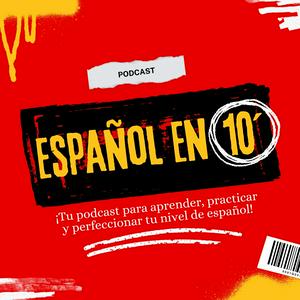3x34 ¡VA DE BURROS!
️ En este nuevo episodio, Dani y Juan se montan al lomo de un burro lingüístico para repasar algunas de las expresiones coloquiales más divertidas y habituales del español… ¡con burros incluidos!
¿Alguna vez has oído eso de “no ver tres en un burro”? ¿O has dicho eso de “burro grande, ande o no ande”? Pues hoy te explicamos de dónde vienen estas frases, cuándo se usan y qué tono tienen. También nos reímos un rato con otras joyitas como “más terco que un burro” o “hacer el burro”, porque sí, a veces todos llevamos un burro dentro.
Este episodio es ideal para estudiantes de nivel B2, C1 y C2 que quieren ampliar su vocabulario real, natural y 100 % coloquial. Y como siempre, te lo explicamos con ejemplos, humor, y ese toque espontáneo que hace que aprender español no sea una carga... ¡sino un paseo en burro!
️ In this episode, Dani and Juan take a fun ride through some of the most common and colorful Spanish expressions that include one very specific animal: the donkey.
They talk about phrases like "no ver tres en un burro" (to have very poor eyesight), "burro grande, ande o no ande" (the idea that bigger is better, even if it’s not practical), and many more. You’ll also hear about "ser más terco que un burro" (to be extremely stubborn) and "hacer el burro" (to act silly or reckless).
It’s a super fun episode, full of stories, jokes, and real-life usage, perfect for upper-intermediate and advanced learners (B2, C1, C2) who want to sound more natural and understand native speakers better. No grammar lectures here—just real talk, a few laughs, and some serious donkey wisdom.
¡Dale al play y aprende español con una sonrisa! / Hit play and learn Spanish with a smile!
